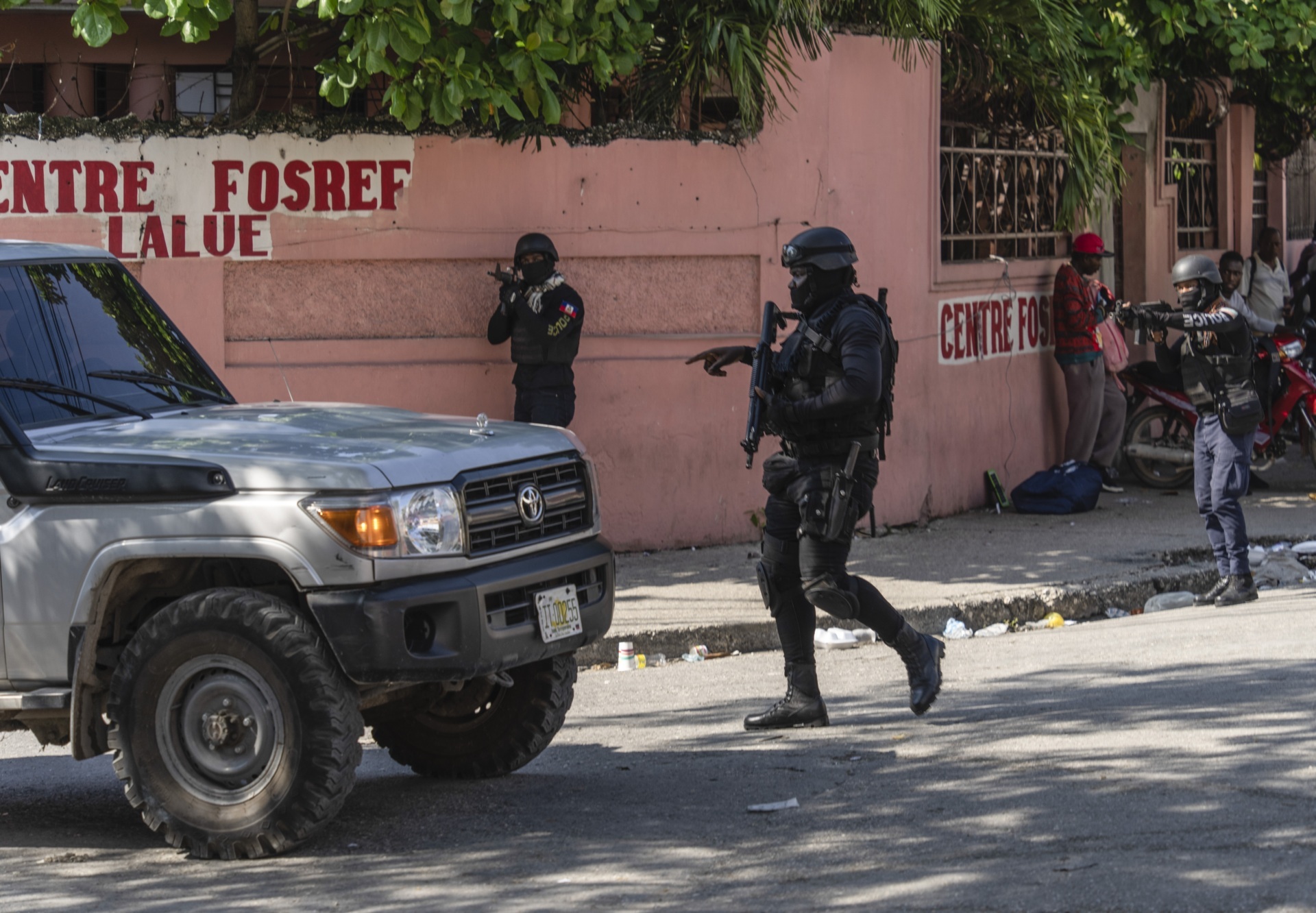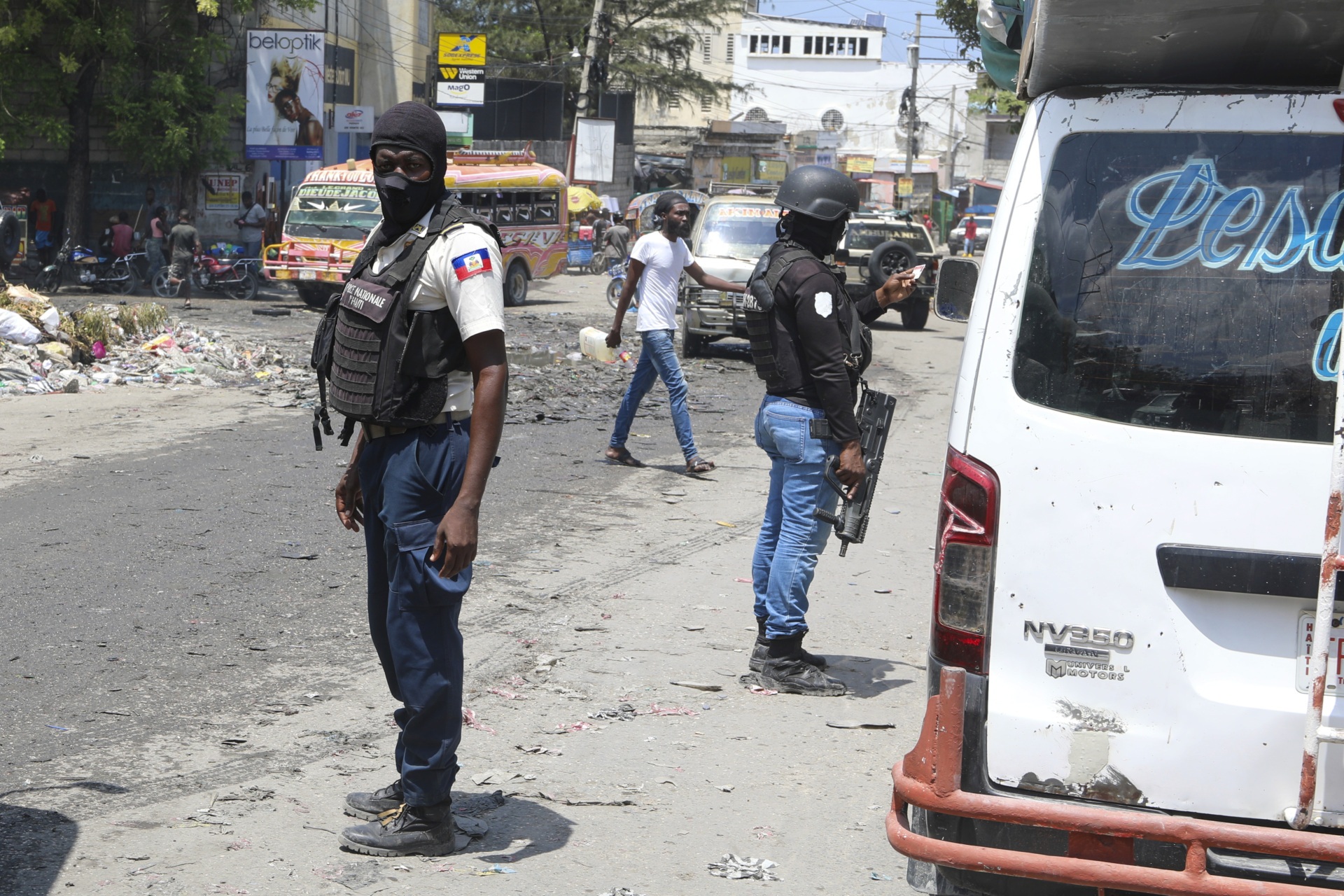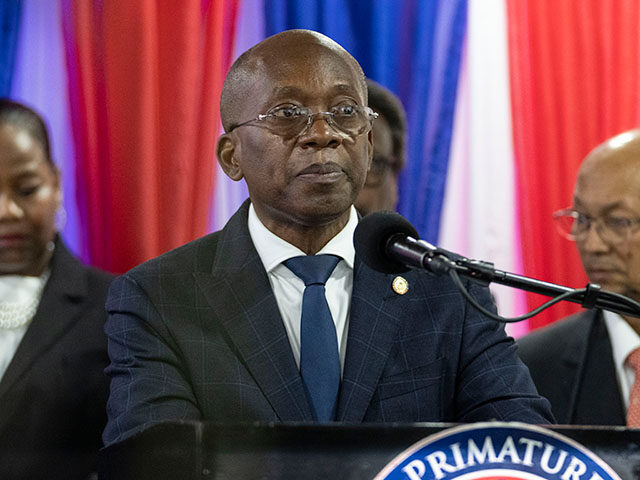Haiti’s recently empaneled transitional council announced Saturday that it will vote for a new president on Tuesday, five days after Prime Minister Ariel Henry’s resignation left the country without official leadership.
The transitional council, consisting of seven voting and two non-voting members, was named on April 16 after months of delays. Henry, who took power after the July 2021 assassination of President Jovenel Moïse and resisted all subsequent efforts to hold elections, was essentially exiled from the country in February when criminal gangs staged a violent insurrection and prevented him from returning home after a trip to Kenya.

Soldiers deploy outside the Prime Minister’s office in Port-au-Prince, Haiti, in preparation for the swearing-in of a transitional council tasked with selecting a new prime minister and cabinet on April 25, 2024. (AP Photo/Ramon Espinosa)
Threats of murder from gangsters drove away some potential members of the transitional council and Henry’s office dragged its feet on administrative tasks while he remained stuck in Puerto Rico, delaying the transition process for weeks. Even when the council members were finally named, there were fears Henry would cling to power by interfering with its work or the gangs would disrupt council meetings by attacking the National Palace in Port-au-Prince.
Those obstacles were finally overcome last Thursday, when the transitional council was sworn in and Henry officially resigned.
Henry’s letter of resignation congratulated “all the members of the government, the staff, the public administration, the security forces and all those who have accompanied me on this patriotic journey,” but in truth his continued presence was a massive obstacle to international assistance for Haiti. Many Haitians regarded Henry as illegitimate and corrupt, raising fears they might refuse to cooperate with peacekeeping or humanitarian missions.
text
The transitional council is charged with establishing a “transitional government,” headed by a temporary president, who will remain in office until nationwide elections are held in February 2026. This would hopefully give the interim government time to secure the country from street violence so that elections could be held.
The U.N. Security Council (UNSC) authorized a peacekeeping mission to Haiti in October 2023, with five small nations – the Bahamas, Bangladesh, Barbados, Benin, and Chad – pledging to contribute personnel, but so far there has been no movement toward actually putting boots on the ground and fighting the gangs.
Before the UNSC authorized the mission, Kenyan President William Ruto had offered to send 1,000 police officers to Haiti, but Kenyan courts struck down his plan because he lacked the constitutional authority to deploy police on foreign soil. Prime Minister Henry was in Kenya trying to arrange a means of getting around this constitutional prohibition when the gangs launched their insurrection in February.

Police stop at a car to inspect in Port-au-Prince, Haiti, on April 22, 2024. (AP Photo/Ramon Espinosa)
Gangs currently control about 80 percent of Port-au-Prince and they continue to attack police stations and sabotage national infrastructure, making it difficult for humanitarian aid to reach the desperate population.
When the transitional council was sworn in on Thursday, the ceremony was interrupted by gunfire outside the National Palace, and the new council was heckled by Port-au-Prince residents who doubted it would be able to restore order. Gang leaders showed little inclination to work with the interim government, telling foreign media they still regard themselves as revolutionaries who are fighting to liberate Haiti from corrupt government.

National Police patrol an intersection amid gang violence in Port-au-Prince, Haiti, on April 8, 2024. (AP Photo/Odelyn Joseph)
One small sign of confidence in the transition process came from American Airlines, which on Friday announced that it plans to resume flights from Miami to Port-au-Prince on May 9. The airline, along with rivals JetBlue and Spirit, suspended flights to Haiti in March as the security situation deteriorated.
The Miami Herald noted that only one plane has landed at the main runway in Port-au-Prince over the past two months: a U.S. military aircraft carrying a shipment of weapons and ammunition for the Haiti National Police (HNP), dispatched by the Biden administration last week after the transitional council was named.

COMMENTS
Please let us know if you're having issues with commenting.